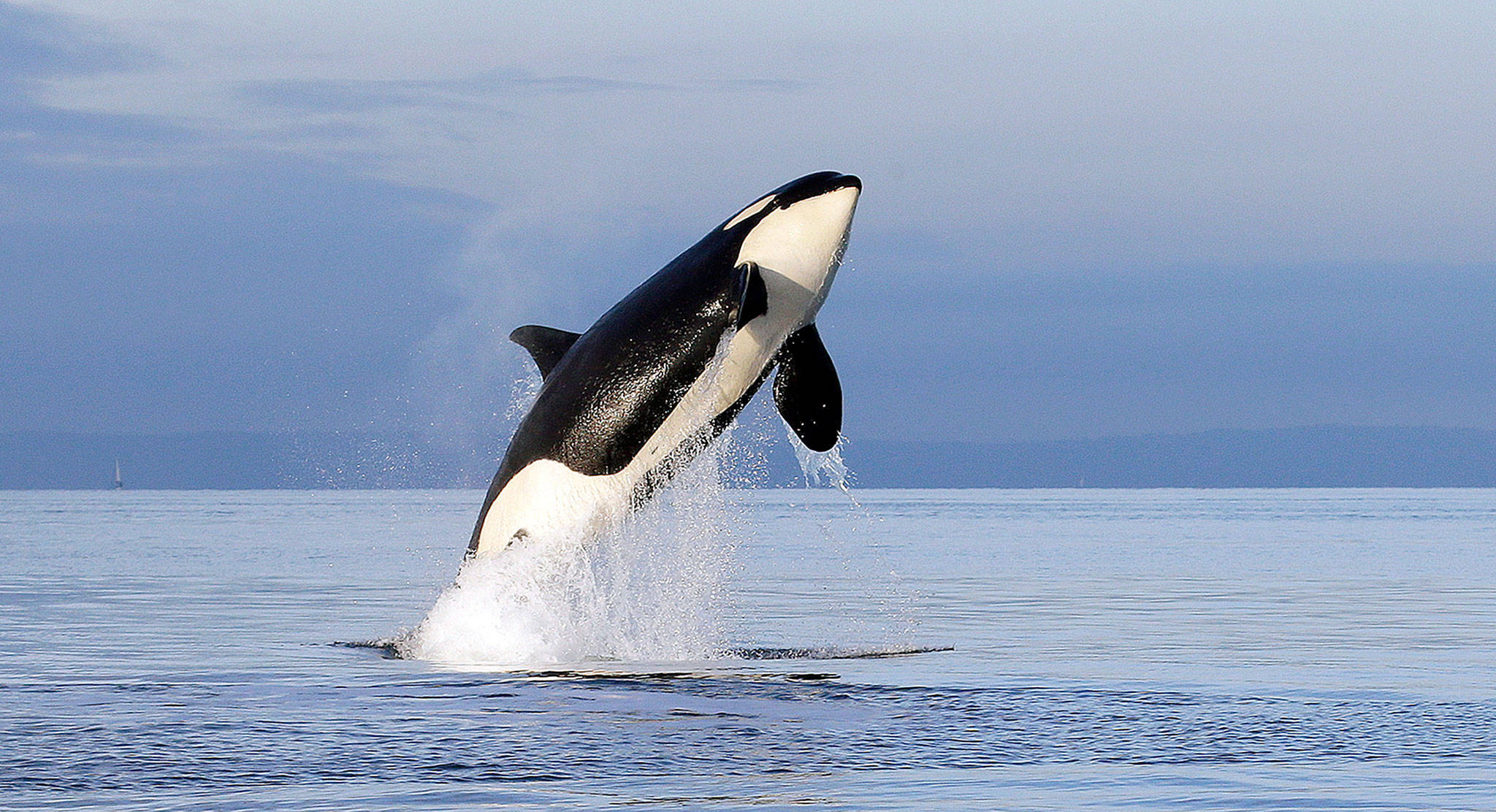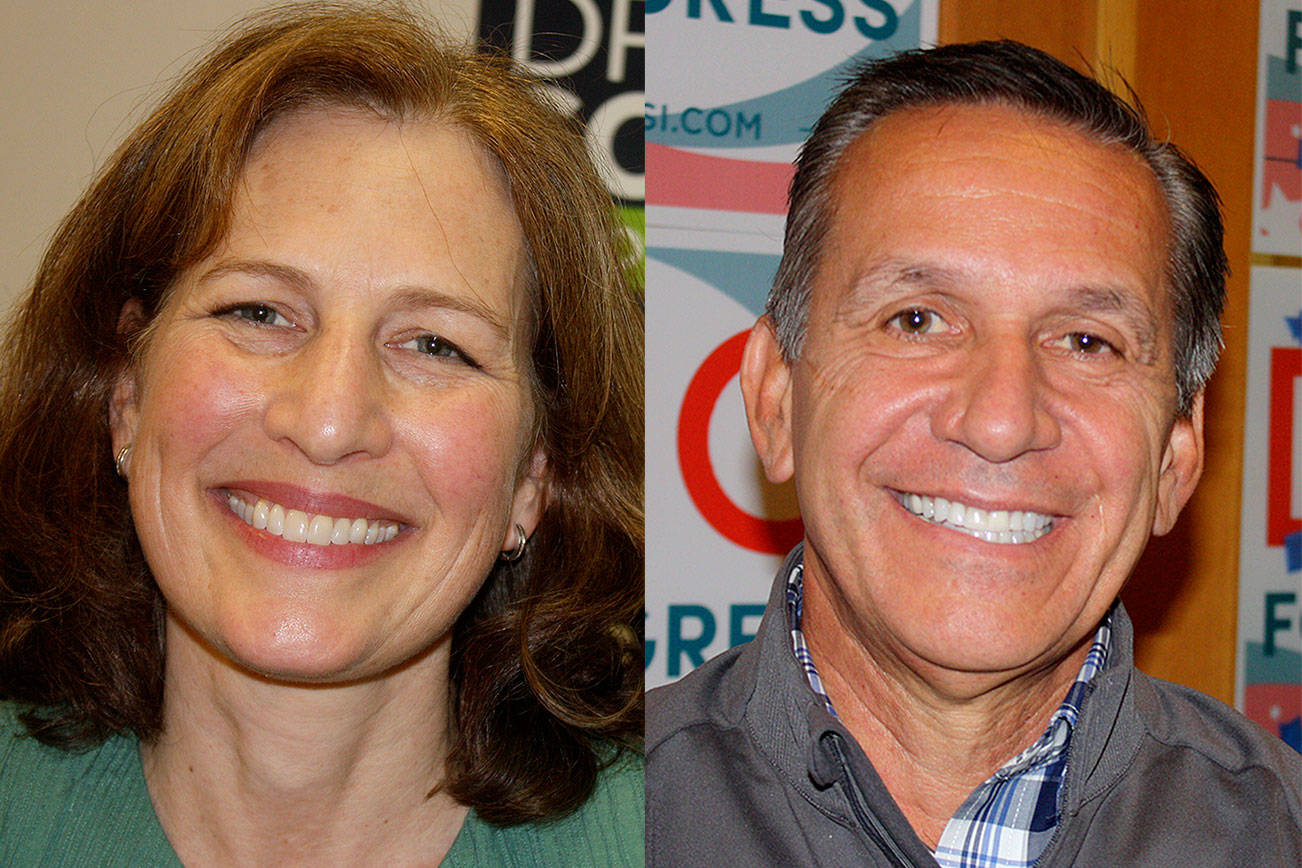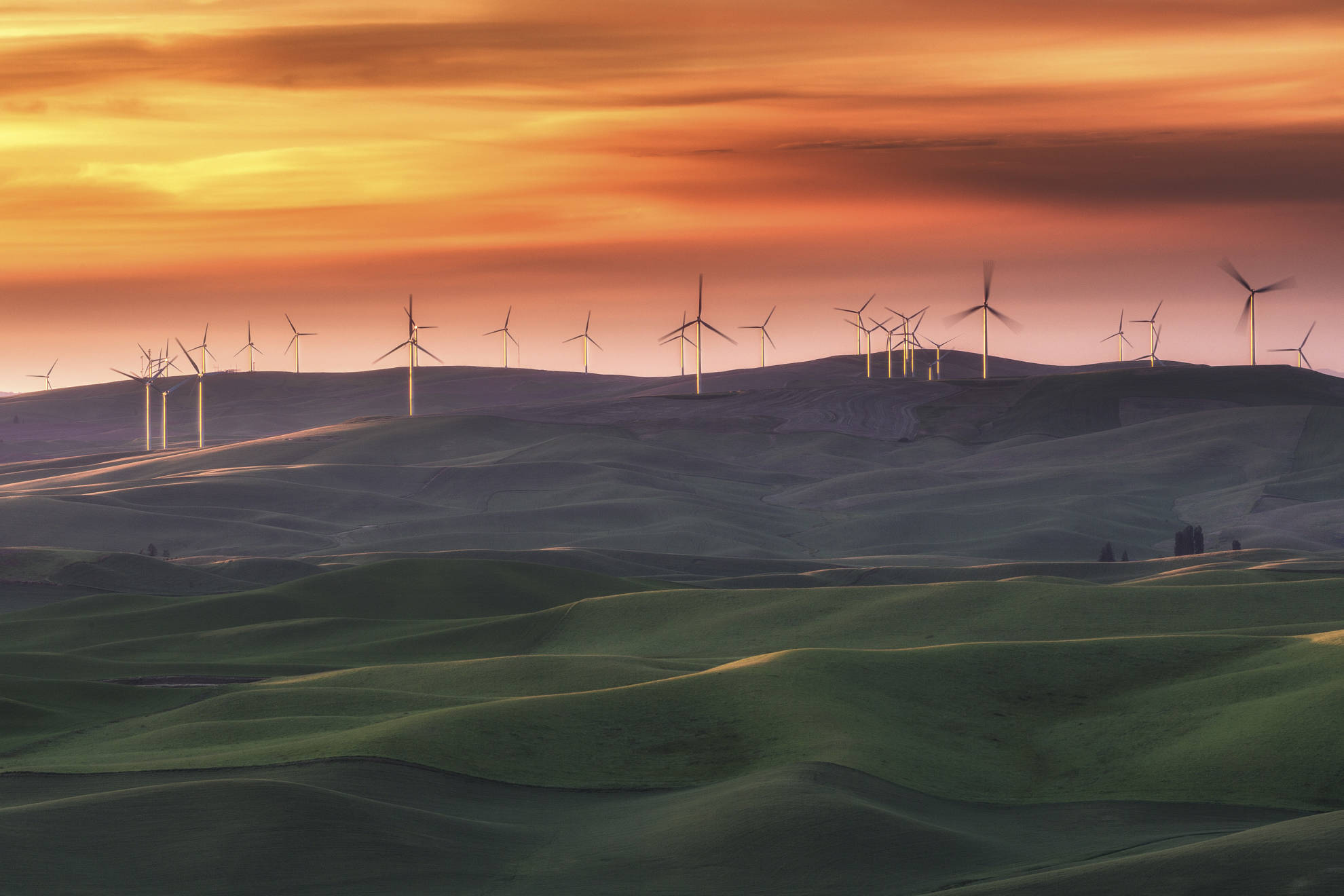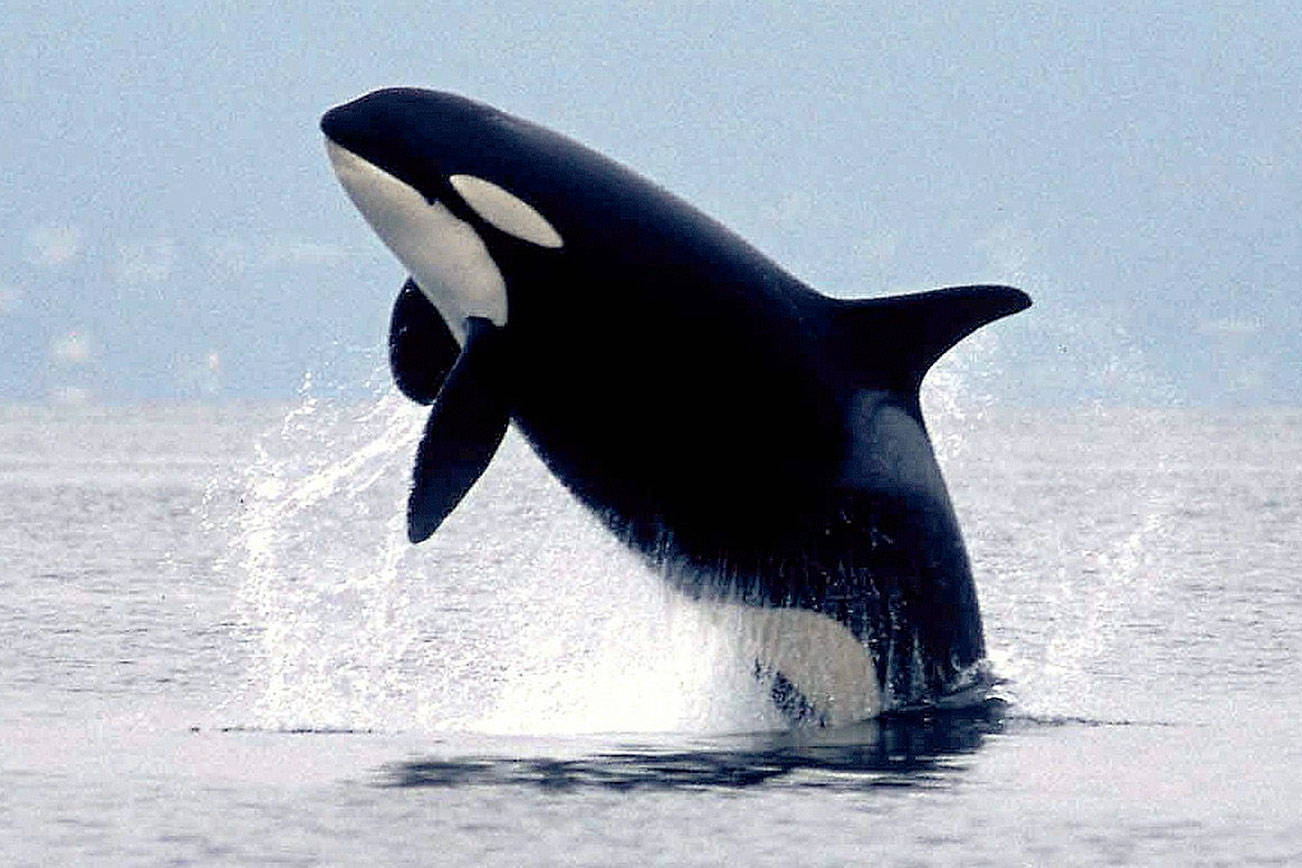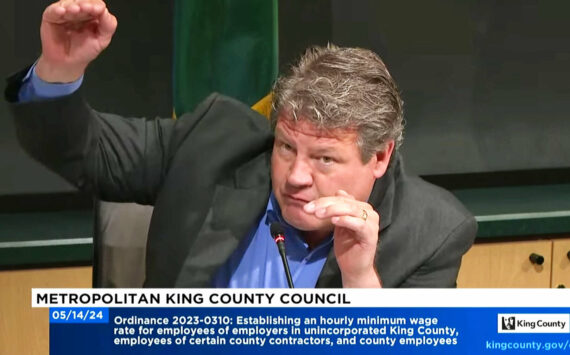A moratorium of three to five years on viewing southern resident orcas in Puget Sound is among 36 recommendations by a task force sent Friday to Gov. Jay Inslee.
That proposed moratorium — which would need approval by the Washington Legislature — would not apply to other whales, including orcas that don’t belong to the three southern resident pods, said Stephanie Solien, co-chairwoman of the governor’s orca recovery task force. Transient orcas and orcas who are not in the southern residents three pods — called J, K and L pods — would not be affected.
Task force co-chairman Les Purce said the state’s whale-watching industry is aware of this proposal and has agreed to it because other whale-watching activities would be kept intact.
Other recommendations unveiled Friday include a massive push to increase Chinook salmon numbers, habitat improvements and studying how to keep sea lions from eating too many Chinook salmon.
Removal of the Lower Snake Dams was not among the recommendations, although increasing spills over those dam was proposed to help young salmon — called smolts — bypass the turbines.
The task recommended removing two small dams — the Pilchuck River Dam in Snohomish County and the Middle Fork Nooksack Dam between Bellingham and Mount Baker. Salmon numbers are struggling on the Pilchuck River. The Middle Fork Nooksack Dam blocks access to 16 miles of prime salmon habitat upstream.
Last spring, Inslee created the task force representing tribes, state agencies, environmental groups, local governments, business interests, and legislators to deal with the shrinking southern resident orca population.
The task force’s goal is to increase the number of southern resident orcas from 74 to 84 in 10 years.
The fastest and biggest potential measure would be to increase the number of fatty Chinook salmon that the orcas to eat. Orcas are picky eaters and tend to focus on Chinook salmon. However, Chinook figures in Washington’s waters has decreased from 335.8 million in 1992 to 175.8 million in 2016, according to state government figures.
Several scientists have looked at the effects of vessel noises and the lack of Chinook salmon on the southern resident killer whales and published their conclusions in Scientific Reports in October 2017.
The study concluded for the southern resident orca pods to grow, there needs to be a 30 percent increase in Chinook salmon if there is no reduction of vessel noise. If vessel noise is reduced 50 percent, only a 15 percent increase of Chinook salmon in Washington’s waters is needed, said Rob Williams, a marine biologist with the Oceans Initiative and initiatives and one of the study’s authors, and Penny Becker, wildlife diversity programs manager for the Washington Department of Fish and Wildlife.
The task force recommends significantly boosting the production of Chinook salmon at hatcheries along Puget Sound and in the Columbia River basin in order to boost the food supply. The task force did not set any specific goals for increased production, nor has it come up with a budget estimate to increase production.
That increased hatchery production would be accompanied by improvements in habitats along the streams and rivers leading from the facilities and from natural salmon spawning areas along the rivers and tributaries.
Ten of the recommendations would need approval by the state Legislature. These include the three-to-five-year moratorium in viewing southern resident killer whales, with a report back on the moratorium’s effectiveness to the governor and Legislature at the end of that period.
Other recommendations needing legislative approval would create a speed limit of seven knots for small and whale-watching vessels within a half-mile of the whales. Vessels also wouldn’t be allowed within 400 yards of orcas. Other recommendations would tighten the permit system for whale-watching vessels, and would install a voluntary extra $10 fee on recreational boat registrations to boost orca education. Boaters would be able to opt out of this fee.
The Legislature could be asked for stricter requirements on tankers using tug boats, plus possibly forbidding shoreline or sea floor infrastructure that would support offshore oil and gas development off Washington’s coast. Oil spill prevention and cleanup standards could become stricter.
The Legislature could be asked to require echo sounders and underwater transducers on boats to be turned off within one kilometer of an orca, except when navigational safety becomes a major factor.
Some potential legislation would also address stricter habitat regulations and improving enforcement of orca-related laws by the Washington Department of Fish and Wildlife.
“I will review these recommendations over the coming weeks, and my staff and I will assess each one for the most impact in the short and long-term. I will roll out my budget and policy priorities in mid-December for consideration during the 2019 legislative session,” Inslee said in a written statement.
So far, no budget calculations have been made for the recommendations that would go to the Legislature. Several recommendations call for addressing pollution seeping into Puget Sound from PCBs, stormwater, and other sources.
